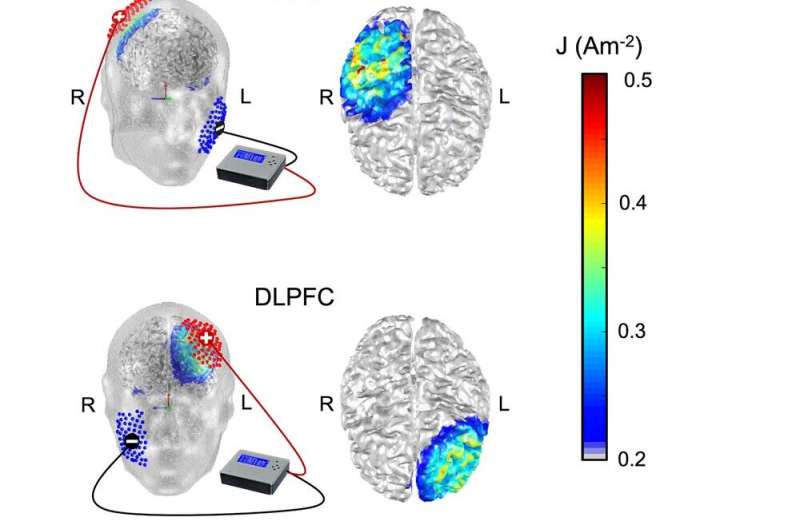This article has been reviewed according to Science X's editorial process and policies. Editors have highlighted the following attributes while ensuring the content's credibility:
fact-checked
trusted source
proofread
Study questions effectiveness of brain stimulation for memory enhancement

A study by the University of Sheffield has cast doubt on the efficacy of non-invasive brain stimulation techniques in improving visual working memory.
The research, published in Communications Psychology, contradicts previous findings on the topic and highlights the need for cautious interpretation of brain stimulation interventions.
Visual working memory, responsible for temporarily holding visual information for cognitive processing, is a critical aspect of human cognition. Scientists have long explored methods to enhance working memory. Non-invasive brain stimulation techniques including transcranial direct current stimulation (tDCS) has emerged as a promising method in the past two decades.
Cognitive abilities such as working memory decline in both healthy aging and in pathologies such as Alzheimer's disease. Brain stimulation is often thought to be a promising additional way to stop cognitive decline.
The study, led by Dr. Shuangke Jiang, from the University of Sheffield's Department of Psychology, attempted to replicate a finding in which authors previously claimed huge benefits of non-invasive brain stimulation on human working memory.
Co-authored by Dr. Myles Jones and Dr. Claudia von Bastian, from the University's Department of Psychology, the study found the results regarding the efficacy of tDCS to improve memory to be equivocal. Researchers instead demonstrated strong evidence against the benefits of tDCS on improving memory, following a single "dose" of 15-minute stimulation.
Dr. Shuangke Jiang said, "The low-cost and easy-to-use tDCS is similar to a TENS machine you might use for back pain relief. Multiple sessions of tDCS can be effective for a range of conditions and are already in NICE guidelines for depression. A single 'dose' of tDCS is reported to have wide ranging effects on psychological functions as diverse as socialization and memory.
"A particularly high profile study suggested that brief tDCS could improve working memory—a temporary memory store that allows us to manipulate information. We have replicated this study with improved methodology and found unequivocal evidence that tDCS does not improve working memory."
The study's results emphasize the complexities involved in assessing the effectiveness of brain stimulation techniques for cognitive enhancement. They emphasize the importance of rigorous replication studies in psychology to establish the reliability and validity of such interventions.
Dr. Shuangke Jiang added, "Our research highlights the critical importance of conducting replications to investigate the effectiveness of interventions, like tDCS, to enhance cognition. Replications catalyze a robust and informative body of evidence on the 'true' effects, and therefore contribute to addressing the replication crisis in Psychology."
More information: Shuangke Jiang et al, TDCS over PPC or DLPFC does not improve visual working memory capacity, Communications Psychology (2024). DOI: 10.1038/s44271-024-00067-8



















